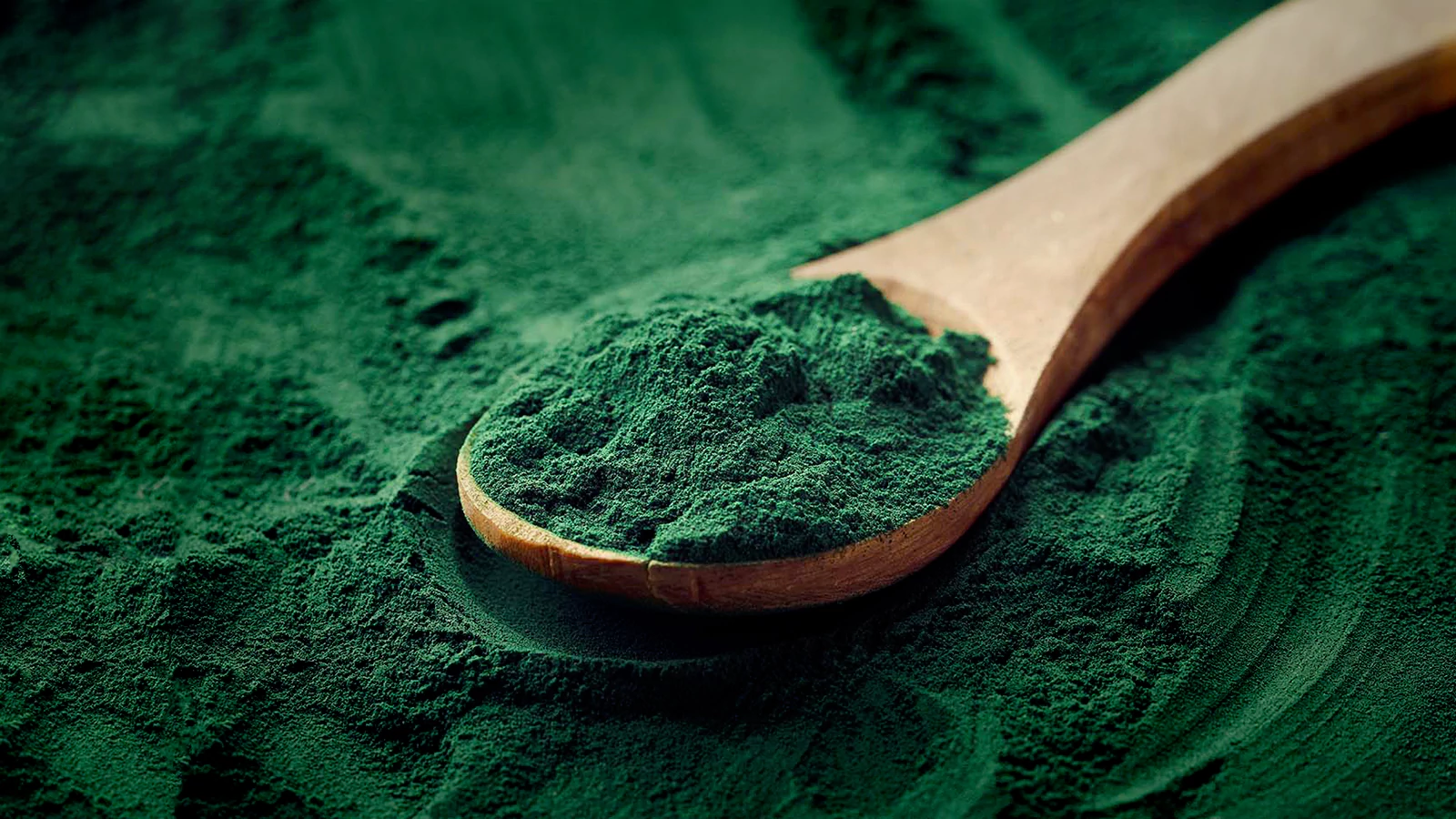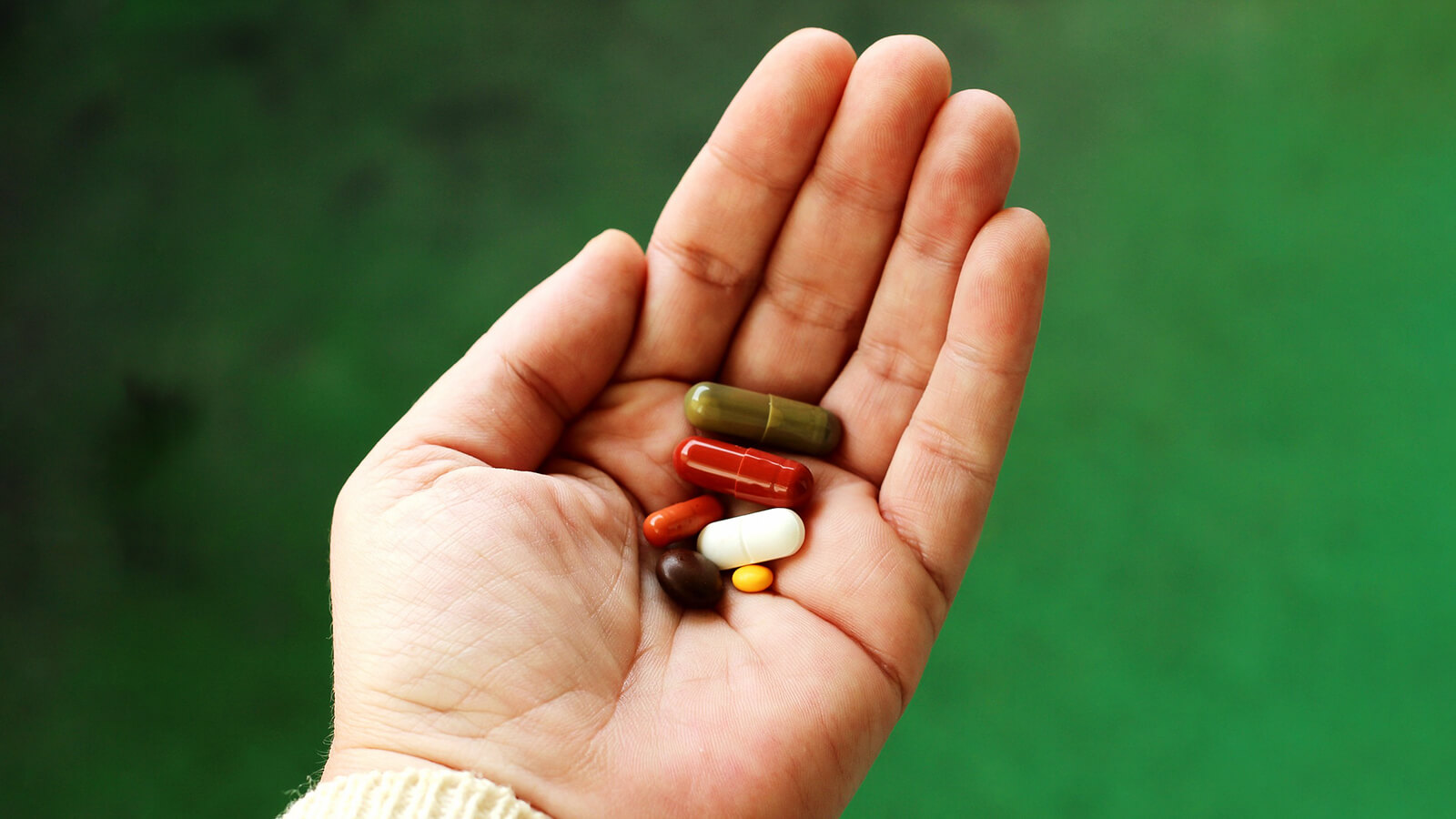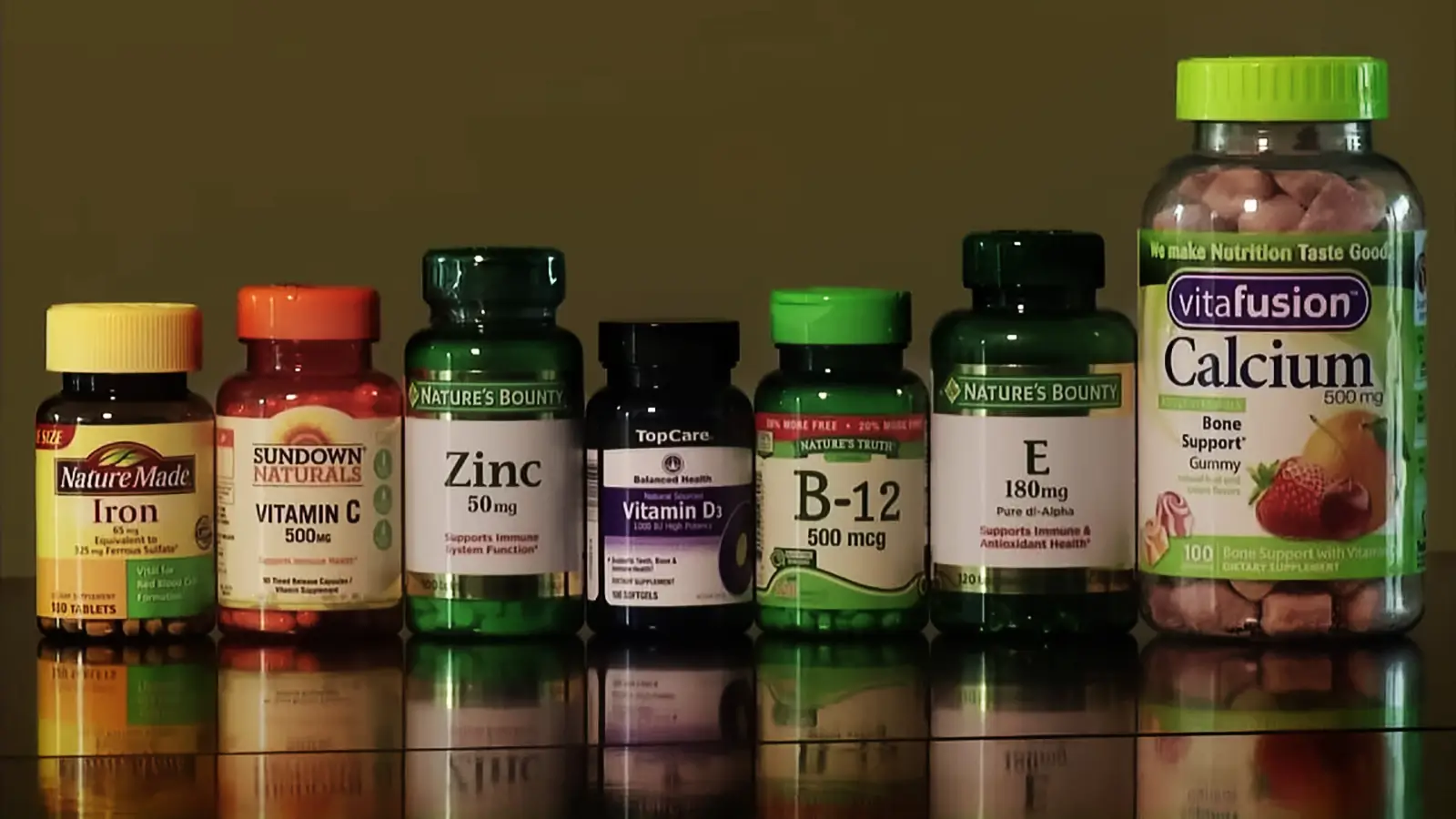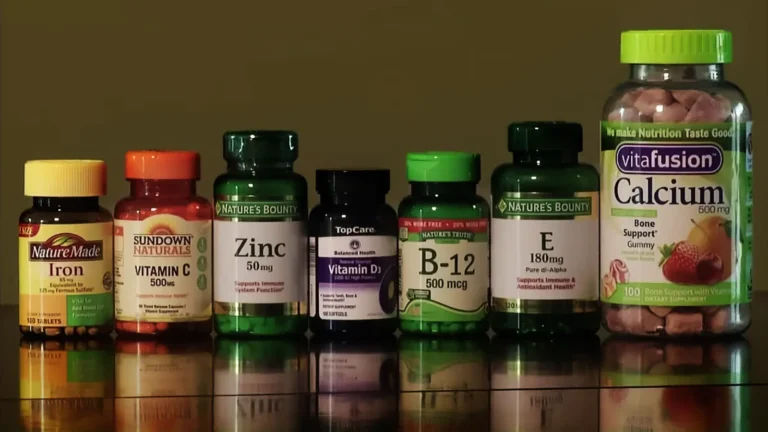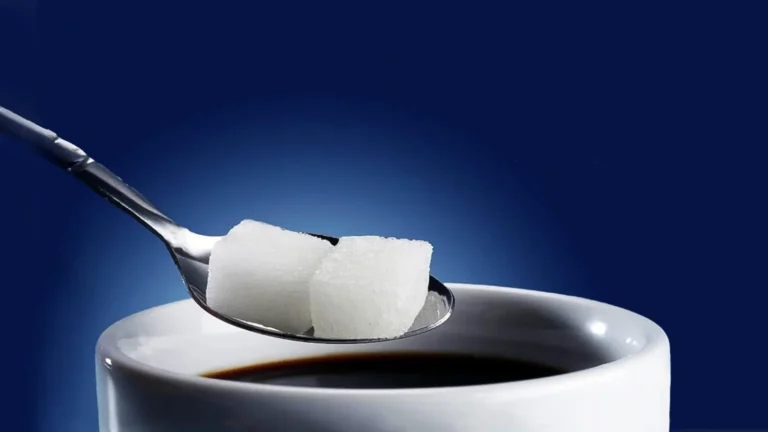B12 Deficiency and Cognitive Decline: Homocysteine Optimization Strategies
Vitamins that regulate homocysteine levels are B12, folate, and B6. Most non-vegans get enough B12 but not enough folate while vegans get more folate but do not have any B12 if not supplemented.
Milos Pokimica
Written By: Milos Pokimica
Medically Reviewed by: Dr. Xiùying Wáng, M.D.
Updated June 10, 2023Key Takeaways:
– Vitamin B12 deficiency in vegans is not a consequence of an evolutionary incongruent diet but rather an evolutionary incongruent environment with clean water.
– If you are a vegan you have to take B12.
– B12 is important in regulating homocysteine levels in the brain.
– Most individuals that are not vegan get enough B12 and B6 but not enough folate.
– When creatine is created homocysteine is also created as a by-product.
– If you want to lower meat consumption the supplemental creatin might be beneficial.
Vitamins.
Vitamins are phytochemicals that we have consumed during our evolution in such a manner that they have become important for survival as much as sugar or other macronutrients. Vita means life.
There are only two vitamins that are not produced by plants. One is vitamin D that we produce ourselves during sunlight exposure and the other would-be vitamin B12. If you are a vegan it is only these two vitamins that you will have to supplement.
People have an easy time understanding how a shift in our lifestyle has caused the constant and prevailing vitamin D deficiency in most of the population. We have moved away from the sunny climate of Africa where we have been evolving for 50 million years and now, we are in the cold climate of the northern hemisphere with no sunlight and we live indoors and wear fabric to protect ourselves from cold. As a result, we don’t have adequate vitamin D levels most of the year and we need to supplement with it. Depending on your weight and sun exposure you should take from 4000 to 5000 I.U. You can take too much vitamin D, the upper tolerable level is 100,000 I.U. a day but taking more than 5000 will have little benefit to overall health and can lower vitamin A levels.
Vitamin B12.
However, what about vitamin B12?
I always receive a question about it. Logic is if we are evolutionarily adapted to be herbivores how is it that there is no B12 in plant foods and only in animal products?
The answer is simple. It is not animals or plants that produce this vitamin but a specific type of bacteria.
We have that type of bacteria in our colon and we have the production of B12 but there is a problem that makes B12 a vitamin for us. B12 is produced below the ileum (where B12 is absorbed), so it is not available for absorption. We produce B12 but it is excreted out instead of it being absorbed. In evolutionary terms, it is not a vegan diet that is a problem but an increase in sanitation. In normal conditions, we would drink polluted water and would not be able to wash our hands. Chimpanzees, for example, will touch their feces and later will eat fruit with the same hand. This allows them to obtain B12 on their diets of plant foods. We don’t do that anymore and we have sanitation so we do not get enough of that vitamin. We do not get cholera also.
The B12 deficiency in vegans is not a consequence of an evolutionary incongruent diet but rather an evolutionary incongruent environment with clean water.
Vitamin B12 deficiency.
In a couple of studies done on the subject of B12 around half of the vegans were severely deficient and around 20 percent depleted. That is because they don’t take B12 supplements. If you are a vegan you have to take B12. Even vegetarians are only 76 percent sufficient (Gilsing et al., 2010).
B12 is an important vitamin for many functions in the body mainly for nerve and brain functioning and the production of red blood cells. Lack of it might cause anemia and, in most cases, it is not iron deficiency as most vegans think. Also, it will prevent cognitive decline. In people, aged 70 about 1 in 5 have cognitive decline without dementia and that will progress to 12 percent full-blow dementia and death. Cognitive decline is a loss of brain cells due to aging. This is normal, to some extent. It is not a full-blown cure for Alzheimer’s disease but it is a form of prevention.
Vitamin B12 deficiency and cognitive decline.
Vitamin B12 is important in regulating homocysteine levels in the brain.
In Alzheimer’s patient’s level of homocysteine is extremely high. This substance is so damaging that in the autopsies of people who have one rare genetic defect that is causing high homocysteine levels, it was shown that it will turn the brain tissue into mush. Even without this genetic defect if there is a nutrient deficiency, the body will not be able to downregulate homocysteine levels creating brain damage in the long run. This is not the cause of Alzheimer’s just by itself but it will increase cognitive decline in the regular aging process and having values above 14 will double the risk of Alzheimer’s. In time brain loss occurs in everyone but in Alzheimer’s patients, it has a fast and accelerated rate and the logic is that if we slow down the brain loss, we will decrease the risk of Alzheimer’s.
There are three vitamins that regulate homocysteine levels B12, folate, and B6. In this study (Smith et al., 2010) the rate of atrophy in subjects that had homocysteine above 13 µmol/L was 53% lower in the active treatment group that received high-dose of B12, folic acid, and B6. In this Alzheimer’s study, researchers concluded that supplementation of B vitamins reduced brain atrophy by 7-fold in specific regions attacked by Alzheimer including the medial temporal lobe (Douaud et al., 2010). They supplemented subjects with 800mg of folic acid and this is of no benefit because folic acid is not folate. Plants have folate and we use folate but the supplements have folic acid. The human liver, unlike in rats, has the ability to convert folic acid into folate but only 400 mg of it in a day. Taking more than that is useless.
Most individuals that are not vegan get enough B12 and B6 but not enough folate. In contrast, most vegans get more folate but do not have any B12 if not supplemented. In this study and in other studies most of the people that have a meat-eating diet have homocysteine levels of about 11 because they don’t eat enough folate which is found predominantly in green leafy vegetables and beans. In America, more than 96 percent of people don’t eat even the lowest recommended number for both greens and beans so they are stuck with a homocysteine level of 11 µmol/L.
One more reason is fiber. Probiotic bacteria in the gut that feeds on fiber have the ability to produce folate in the colon. For every gram of fiber 2 percent of folate, RDA is produced by bacteria. If you eat a minimum of 30 grams of fiber recommended by the RDA you will have 60 percent of folate produced by your own healthy microbiome. Also, when we eat animal products we have an increase in methionine and this is actually a substance that creates homocysteine in the body in the first place. Methionine comes mostly from animal protein. It is an essential amino acid in humans and homocysteine is a byproduct of methionine metabolism. A high protein diet, especially a high-quality complete protein diet is responsible for the increase in homocysteine levels in the brain creating brain damage. If you put people on a vegan diet their homocysteine level will drop to 9 in two weeks without any supplements but when we look at long-term vegans their homocysteine levels are horrendous. In this study (Obersby et al., 2013) vegans had homocysteine levels of 16.41 and vegetarians 13.91, and omnivores 11.03. This is because they didn’t supplement with B12. It is one vitamin that is lacking which puts vegans in a really bad situation considering brain atrophy. However, if vegans supplement with B12 they can reap all of the benefits of their diet, and then their homocysteine levels will drop below 5. If you don’t eat enough fiber and have a high protein intake or in other words, you are eating a standard American diet you will have to increase folate consumption. It is one of the most prevalent deficiencies, especially in people that also have toxoplasmosis. Around 50 million people in the US have it. Toxoplasmosis is considered to be a leading cause of death attributed to foodborne illness in the United States. This parasite actively sucks out folate from brain cells and this leads to cognitive decline.
Nigh homocysteine level is not something most people are familiar with or do active testing for it. Still, it is a deadly condition that if not immediately corrected can turn itself into a chronic and serious disease with permanent consequences. High homocysteine levels are one of those conditions created by nutrient deficiency that will be subclinical until it is not. And when the first symptoms emerge it is already too late. Damage has already been done. You don’t want this especially because it is one of the nutrient deficiencies that can be easily prevented. I will use a couple of cases as an example from clinical practice here.

Cases from clinical practice.
In this reported case a 57-year-old man who had been for a 13-years on a vegan diet suffered from muscular hypotrophy and weakness and was unable to walk. He had complete paraplegia (paralysis that mainly affects your legs) with neurogenic bladder and bowel (loss of feeling that the bowel is full and loss of bladder and bowel control) and hyperreflexia (twitching and spastic tendencies, which indicate disease of the upper motor neurons). Cervical and dorsal spine MRI showed sclerotic mixed degeneration of the spinal cord. (Brocadello et al., 2007) Chronic B12 deficiency in this case, he was not aware of homocysteine’s role in neuron degradation and he did not take B12 supplements created a full-blown disability. He was not ben able to walk or go to the toilet. One year of supply of cobalamin supplement will cost you about 12 dollars.
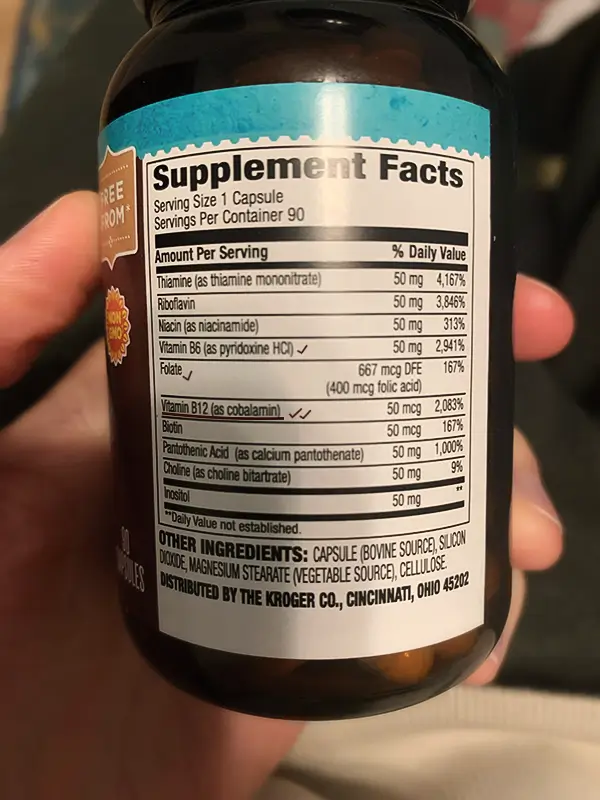
Cobalamin therapy was initiated. Despite receiving rehabilitation therapy, he acquired spastic hypertonia while paresthesia (the burning or prickling sensation that is usually felt in the hands, arms, legs, or feet) only slightly improved. Hematological analysis and vitamin B12 plasma levels were both normal six months later. Despite advancements in magnetic resonance imaging, the patient’s spastic paraplegia persisted a year later, and he was still unable to walk.
This might be an extreme case but in any case, high homocysteine levels do damage. It doesn’t matter if you are vegan or not in most cases in most of the population homocysteine levels are very high and it is a nutrient deficiency disease with serious consequences that will do unreversible damage because once neurons are dead they are dead for good. The only thing we should do is to try to prevent damage in the first place or in this case have a supplemental intervention. If you are eating the standard American diet you most likely have inadequate folate intake and if you are vegan you have to take B12 supplements.
Subacute combined degeneration of the spinal cord is a neurological complication of vitamin B12 deficiency (Qudsiya et al., 2023). This man suffered disability but it is not a unique case scenario. In this case, vegetarians got a disease named after them, vegetarian myelopathy. Myelopathy means degeneration of the spinal cord due to demyelination (damage to the protective covering (myelin sheath) that surrounds nerve fibers in your brain, the nerves leading to the eyes (optic nerves), and the spinal cord).
In this reported case (Takahashi et al., 2006) a vegetarian lady, age 49, experienced paresthesia. Her hands and toes showed less position sensation but the rest of her sensory and motor systems seemed to function normally. The legs displayed hyperreflexia. There was macrocytic anemia and a low level of vitamin B12 in the blood (123 pg/ml). The majority of the paresthesia in her hands and toes persisted despite three months of treatment with cyanocobalamin. A second MRI scan revealed diminished but still present lesions.
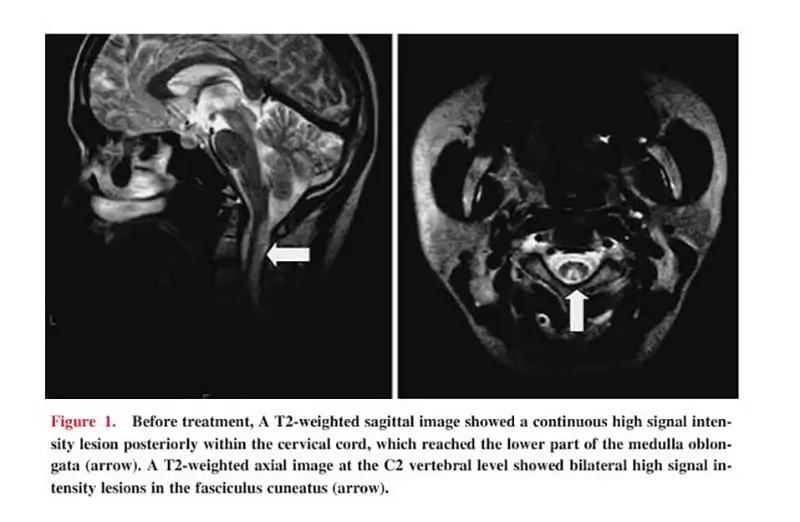
Creatine and homocistine methabolism.
If we get our homocysteine level In the normal range the sad truth is that it still will do some amount of damage, and this is just a normal process of aging. If we still want to slow down this normal cognitive decline we might have one more available strategy on top of nutrition and additional optimization with vitamins.
There is a correlation that for some time was not fully understood. Homocysteine levels were on average higher in men. It was not much, a half point higher, but it was present. Because high homocysteine is correlated to cardiovascular disease as well as with cognitive decline this might be one contributing factor besides lower estrogen levels in men that creates a higher risk for cardiovascular disease. Estrogen is cardio and neuroprotective. ‘Gender gap’ in homocysteine levels was eventually explained by muscle mass. Women on average have less muscle mass than men. Because they have less of muscles women have to make less creatine. You might hear of creatine as a bodybuilding or as a general sports supplement.
The problem with creatine is that when our bodies make it, homocysteine is also created as a by-product.
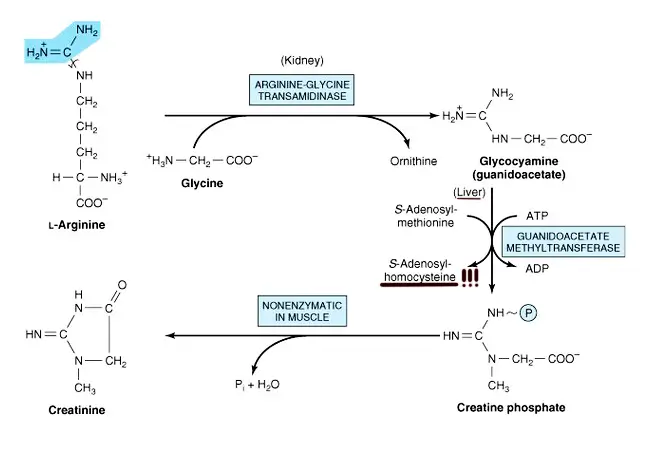
The theory goes that if you take external supplemental creatine you will down-regulate internal production and as a byproduct cut the production of homocysteine as well.
In this regard, creatine supplementation may represent a practical strategy to draw homocysteine levels down into the normal range outside of other supplemental benefits that creatine as a supplement might have. Or might be a longevity supplement if studies show that we could downregulate our homocysteine levels below normal if we correct B12 and folate deficiencies. Creatin has other benefits as well and it is one of the most used supplements in sports nutrition to date.
This was put to the test and the results were mixed.
The results were mixed. There were studies that show that supplemental creatin does downregulate homocysteine production but there were also studies that showed nothing. There were also different effects of creatin in different individuals inside the studies themselves. We can look at averages that showed nothing of that show reduction but the results varied between individuals even more than averages have shown. And this is or was expected because the same thing happens in sports nutrition as well. If you want to start lifting for example and you have never taken creatine you might be surprised to find out that it might do nothing for you. And you might be surprised if your training partner experiences substantial benefits. It is known as a non-response in the bodybuilding community. Actually, most lifters do not have any or have just marginal benefits from additional creatine supplementation. This is a very known issue that many first-time gym goers or people not familiar with supplement marketing false advertising experience when they have over expectations of supplemental benefits. Exactly the same thing was found in homocysteine experiments.
The reason is that people have different diets. And some people are already “supplementing” creatine in the meat they are eating. The more meat you consume the more creatine comes along as well.
When you start supplemental creatine there is a loading phase. The normal supplemental protocol is to take 20 grams for the first couple of weeks to reach saturation and then to transition to maintenance faze. But if you already eat more creatine than normal, which is zero in terms of human evolution, you might already have reached some level of saturation.
Scientists are aware of this so on a population scale that Is already creatine loaded from all animal products that people on the standard American diet are already eating whole suggestion that taking creatine supplements would lower homocysteine was called into question.
But all those studies were done on non-vegans. If you want to lower meat consumption the supplemental creatin might be beneficial. We need studies on people that have low dietary creatine consumption. People eating strictly plant-based diets make all of their creatine from scratch, so may be more sensitive to added dietary creatine.
In this study (Van Bavel et al., 2019) they look at people that are only eating plant-based diets and at the same time were not supplementing their diets with vitamin B12.
Their homocysteine level was as expected, much worse than any other group. The worst levels imaginable. In some subjects was even higher than 50. Normal levels or levels that are considered to be normal are around 10. This number is still high and much worse than the really optimal level and will create cognitive decline. Not as much as 50, that is just terrible.
They were started on creatine without B12 supplementation. Just creatine. Their levels did go don’t and did go down all the way to a normal level around 10. This is just supplemental creatine alone. Additional B12 will bring this level much lower. I was unable to find any study and this is a suggestion for people that want to do their doctoral dissertation to find vegans that do not supplement B12 and then put them on both B12 and creatine. This might be important in cases of elevated homocysteine in people that do take B12. In some cases even after supplementation, there are individuals that have elevated levels of homocysteine for some still unidentified reason, meaning above 10, despite taking B12 supplements and having adequate folate levels. In this case and in general, I will advise that everyone that eats plant-based have additional creatine supplementation to bring homocysteine down as much as physically possible as a strategy for longevity. Preventing cognitive decline is one of the longevity strategies that in this case is not expensive at all. Creatine is basically free. Dirt cheap supplement.
One thing to keep in mind is that it might give you bloat, or “pump”. It is not subcutaneous water but still elevated creatine will pull water with itself as well. People in the gym call it a pump but it is just additional water retention. And this is in cases where you reached full body saturation level. For example, a study of 13 athletes observed that supplementing with 0.01 grams per pound (0.3 grams per kg) of body weight per day for 7 days led to a significant increase in total body water of 2.3 pounds (1 kg) (Deminice et al., 2016).
Is this optimal I don’t know. I didn’t look into studies for creatine bloat in detail. It might be a problem if you have an excess of sodium in your diet and don’t have adequate potassium levels which all of us do.
The reason why creatine gives you a pump is that creatine is a hydrophilic molecule, which means it attracts water and increases total body water content when taken but it does not seem to cause an altering of fluid distribution. It does not create dehydration (Powers et al., 2003).
No data are currently available regarding the potential production of heterocyclic amines with creatine supplementation (Cooked Meat- The Mutagen in a Bite, Heterocyclic Amine Exposure).
If you want to supplement with additional creatine you will reach full body saturation at one point. The excess goes to storage so it might take a couple of months but you will reach saturation. The normal supplemental dosage for homocysteine reduction is about one to two grams daily. People eating a standard American diet will get 0.5 to 1 gram. That was the amount, around one gram that nonvegetarians avoid making just from eating meat. One gram a day in the study erased differences in muscle creatine concentration.
Because creatine metabolizes through the kidneys if you have kidney problems you should consult your physician but in these cases, dosages of around 20 grams per day have been shown to create mild stress. Any other side effects besides water retention and mild kidney stress with overdosing have not been reported. Creatine is the most researched molecule in entire sports nutrition. Millions of people are using it on a daily basis. Even if it does show some side effects we have to understand that there are no real alternatives for homocysteine management and homocysteine is a pure neurotoxin. It also contributes to cardiovascular diseases and stroke risk. The reason why vegans have the same if not even higher stroke risk than the rest of the population is because of the high homocysteine levels. Most vegans do not take supplements for whatever reason and this is a big mistake. If you are into the plant-based diet for philosophical reasons keep in mind that our hominin ancestors have licked their feces every time they touch their mouth or put some food into their mouth with their hands. Diseases killed most people in our natural environment and the average lifespan was twenty-something years of age.
My recommendation is to take your B12. Also, risk benefits here go to creatine favor as a longevity supplement. It might help you work out as well.
If you have meat dominant diet you don’t need it. In these cases, my recommendation is to lower your animal products and process food consumption as much as you passably can and to start to supplement with it. At least increase folate in the diet. Doses of up to 3 grams of creatine per day in a prolonged period have shown to be safe. It is a dirt cheap supplement, the same as any form of supplemental cobalamin but my suggestion is to stick to quality brands. In most of the studies of samples of creatine made by different companies around half always have some impurities. It is not alarming but half of the samples exceed the maximum level recommended by FDA for at least one contaminant.
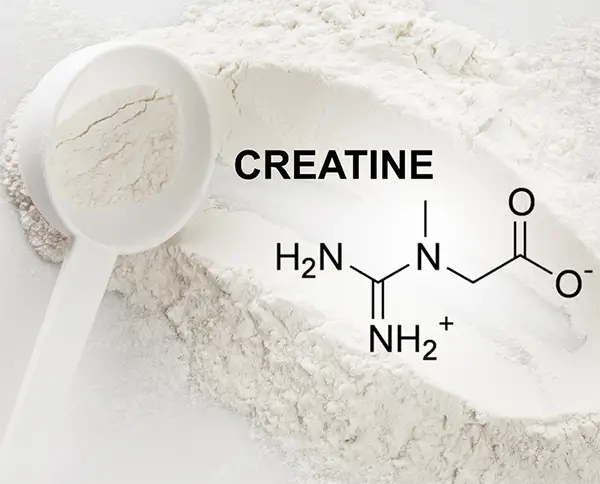
Also, you don’t need to take it every day. I personally just for convenience reasons take creatine with some other supplements two times a week five to seven grams (one teaspoon) each time, 10 to 15 grams per week in total.
Conclusion:
- There are only two vitamins that are not produced by plants.
- It is not animals or plants that produce vitamin B12 but a specific type of bacteria.
- Vitamin B12 deficiency in vegans is not a consequence of an evolutionary incongruent diet but rather an evolutionary incongruent environment with clean water.
- Severe vitamin B12 deficiency affects around half of the vegans and 20 percent are completely depleted.
- If you are a vegan you have to take B12.
- Vegetarians are only 76 percent sufficient.
- B12 is important in regulating homocysteine levels in the brain.
- In Alzheimer’s patient’s level of homocysteine is extremely high.
- Three vitamins regulate homocysteine levels B12, folate, and B6.
- Most individuals that are not vegan get enough B12 and B6 but not enough folate.
- Most vegans get more folate but do not have any B12 if not supplemented.
- When creatine is created homocysteine is also created as a by-product.
- The standard American diet Is already creatine loaded from animal products.
- If you want to lower meat consumption the supplemental creatin might be beneficial.
- For vegans and vegetarians, my recommendation is to always take your B12.
- For vegans and vegetarians risk benefits go to creatine favor as a longevity supplement. It might help you work out as well.
FAQ
References:
- Gilsing, A. M., Crowe, F. L., Lloyd-Wright, Z., Sanders, T. A., Appleby, P. N., Allen, N. E., & Key, T. J. (2010). Serum concentrations of vitamin B12 and folate in British male omnivores, vegetarians and vegans: results from a cross-sectional analysis of the EPIC-Oxford cohort study. European journal of clinical nutrition, 64(9), 933–939. https://doi.org/10.1038/ejcn.2010.142
- Smith, A David et al. “Homocysteine-lowering by B vitamins slows the rate of accelerated brain atrophy in mild cognitive impairment: a randomized controlled trial.” PloS one vol. 5,9 e12244. 8 Sep. 2010, doi:10.1371/journal.pone.0012244
- Smith, A. D., Smith, S. M., de Jager, C. A., Whitbread, P., Johnston, C., Agacinski, G., Oulhaj, A., Bradley, K. M., Jacoby, R., & Refsum, H. (2010). Homocysteine-lowering by B vitamins slows the rate of accelerated brain atrophy in mild cognitive impairment: a randomized controlled trial. PloS one, 5(9), e12244. https://doi.org/10.1371/journal.pone.0012244
- Obersby, D., Chappell, D. C., Dunnett, A., & Tsiami, A. A. (2013). Plasma total homocysteine status of vegetarians compared with omnivores: a systematic review and meta-analysis. The British journal of nutrition, 109(5), 785–794. https://doi.org/10.1017/S000711451200520X
- Brocadello, F., Levedianos, G., Piccione, F., Manara, R., & Francini Pesenti, F. (2007). Irreversible subacute sclerotic combined degeneration of the spinal cord in a vegan subject. Nutrition, 23(7-8), 622-624. https://doi.org/10.1016/j.nut.2007.05.006
- Qudsiya, Z. (2023, February 12). Subacute Combined Degeneration of the Spinal Cord. StatPearls – NCBI Bookshelf. https://www.ncbi.nlm.nih.gov/books/NBK559316/
- Takahashi, H., Ito, S., Hirano, S., Mori, M., Suganuma, Y., & Hattori, T. (2006). Subacute combined degeneration of the spinal cord in vegetarians: vegetarian’s myelopathy. Internal medicine (Tokyo, Japan), 45(10), 705–706. https://doi.org/10.2169/internalmedicine.45.1731
- Van Bavel, D., de Moraes, R., & Tibirica, E. (2019). Effects of dietary supplementation with creatine on homocysteinemia and systemic microvascular endothelial function in individuals adhering to vegan diets. Fundamental & clinical pharmacology, 33(4), 428–440. https://doi.org/10.1111/fcp.12442
- Deminice, R., Rosa, F. T., Pfrimer, K., Ferrioli, E., Jordao, A. A., & Freitas, E. (2016). Creatine Supplementation Increases Total Body Water in Soccer Players: a Deuterium Oxide Dilution Study. International journal of sports medicine, 37(2), 149–153. https://doi.org/10.1055/s-0035-1559690
- Powers, M. E., Arnold, B. L., Weltman, A. L., Perrin, D. H., Mistry, D., Kahler, D. M., Kraemer, W., & Volek, J. (2003). Creatine Supplementation Increases Total Body Water Without Altering Fluid Distribution. Journal of Athletic Training, 38(1), 44-50. https://www.ncbi.nlm.nih.gov/pmc/articles/PMC155510/ [PubMed]
Do you have any questions about nutrition and health?
I would love to hear from you and answer them in my next post. I appreciate your input and opinion and I look forward to hearing from you soon. I also invite you to follow us on Facebook, Instagram, and Pinterest for more diet, nutrition, and health content. You can leave a comment there and connect with other health enthusiasts, share your tips and experiences, and get support and encouragement from our team and community.
I hope that this post was informative and enjoyable for you and that you are prepared to apply the insights you learned. If you found this post helpful, please share it with your friends and family who might also benefit from it. You never know who might need some guidance and support on their health journey.
– You Might Also Like –

Learn About Nutrition
Milos Pokimica is a doctor of natural medicine, clinical nutritionist, medical health and nutrition writer, and nutritional science advisor. Author of the book series Go Vegan? Review of Science, he also operates the natural health website GoVeganWay.com
Medical Disclaimer
GoVeganWay.com brings you reviews of the latest nutrition and health-related research. The information provided represents the personal opinion of the author and is not intended nor implied to be a substitute for professional medical advice, diagnosis, or treatment. The information provided is for informational purposes only and is not intended to serve as a substitute for the consultation, diagnosis, and/or medical treatment of a qualified physician or healthcare provider.NEVER DISREGARD PROFESSIONAL MEDICAL ADVICE OR DELAY SEEKING MEDICAL TREATMENT BECAUSE OF SOMETHING YOU HAVE READ ON OR ACCESSED THROUGH GoVeganWay.com
NEVER APPLY ANY LIFESTYLE CHANGES OR ANY CHANGES AT ALL AS A CONSEQUENCE OF SOMETHING YOU HAVE READ IN GoVeganWay.com BEFORE CONSULTING LICENCED MEDICAL PRACTITIONER.
In the event of a medical emergency, call a doctor or 911 immediately. GoVeganWay.com does not recommend or endorse any specific groups, organizations, tests, physicians, products, procedures, opinions, or other information that may be mentioned inside.
Editor Picks –
Milos Pokimica is a health and nutrition writer and nutritional science advisor. Author of the book series Go Vegan? Review of Science, he also operates the natural health website GoVeganWay.com
Latest Articles –
Top Health News — ScienceDaily
- The overlooked nutrition risk of Ozempic and Wegovyon February 4, 2026
Popular weight-loss drugs like Ozempic and Wegovy can dramatically curb appetite, but experts warn many users are flying blind when it comes to nutrition. New research suggests people taking these medications may not be getting enough guidance on protein, vitamins, and overall diet quality, increasing the risk of muscle loss and nutrient deficiencies.
- A 25-year study found an unexpected link between cheese and dementiaon February 4, 2026
A massive Swedish study tracking nearly 28,000 people for 25 years found an unexpected link between full-fat dairy and brain health. Among adults without a genetic risk for Alzheimer’s, eating more full-fat cheese was associated with a noticeably lower risk of developing the disease, while higher cream intake was tied to reduced dementia risk overall. The findings challenge decades of low-fat dietary advice but come with important caveats.
- MIT’s new brain tool could finally explain consciousnesson February 4, 2026
Scientists still don’t know how the brain turns physical activity into thoughts, feelings, and awareness—but a powerful new tool may help crack the mystery. Researchers at MIT are exploring transcranial focused ultrasound, a noninvasive technology that can precisely stimulate deep regions of the brain that were previously off-limits. In a new “roadmap” paper, they explain how this method could finally let scientists test cause-and-effect in consciousness research, not just observe […]
- Why heart disease risk in type 2 diabetes looks different for men and womenon February 4, 2026
Scientists are digging into why heart disease risk in type 2 diabetes differs between men and women—and sex hormones may be part of the story. In a large Johns Hopkins study, men with higher testosterone had lower heart disease risk, while rising estradiol levels were linked to higher risk. These hormone effects were not seen in women. The results point toward more personalized approaches to heart disease prevention in diabetes.
- Sound machines might be making your sleep worseon February 4, 2026
Sound machines may not be the sleep saviors many believe. Researchers found that pink noise significantly reduced REM sleep, while simple earplugs did a better job protecting deep, restorative sleep from traffic noise. When pink noise was combined with outside noise, sleep quality dropped even further. The results suggest that popular “sleep sounds” could be doing more harm than good—particularly for kids.
- This unexpected plant discovery could change how drugs are madeon February 3, 2026
Plants make chemical weapons to protect themselves, and many of these compounds have become vital to human medicine. Researchers found that one powerful plant chemical is produced using a gene that looks surprisingly bacterial. This suggests plants reuse microbial tools to invent new chemistry. The insight could help scientists discover new drugs and produce them more sustainably.
- A hidden cellular process may drive aging and diseaseon February 3, 2026
As we age, our cells don’t just wear down—they reorganize. Researchers found that cells actively remodel a key structure called the endoplasmic reticulum, reducing protein-producing regions while preserving fat-related ones. This process, driven by ER-phagy, is tied to lifespan and healthy aging. Because these changes happen early, they could help trigger later disease—or offer a chance to stop it.
PubMed, #vegan-diet –
- Diet type and the oral microbiomeon February 2, 2026
CONCLUSION: The diet-oral microbiome-systemic inflammation axis is bidirectional and clinically relevant. Understanding both direct ecological regulation and indirect metabolic effects is essential to support precision nutrition strategies aimed at maintaining oral microbial balance and systemic inflammatory risk mitigation.
- Consensus document on healthy lifestyleson January 22, 2026
Proteins are a group of macronutrients that are vital to our lives, as they perform various functions, including structural, defensive and catalytic. An intake of 1.0-1.2 g/kg/body weight per day would be sufficient to meet our needs. Carbohydrate requirements constitute 50 % of the total caloric value and should be obtained mainly in the form of complex carbohydrates. In addition, a daily intake of both soluble and insoluble fiber is necessary. Regular consumption of extra virgin olive oil […]
- Vitamin B12 and D status in long-term vegetarians: Impact of diet duration and subtypes in Beijing, Chinaon January 21, 2026
CONCLUSIONS: This study reveals a dual challenge among Beijing long-term vegetarians: vitamin B12 deficiency was strongly associated with the degree of exclusion of animal products from the diet (veganism), while vitamin D deficiency was highly prevalent and worsened with longer diet duration. The near-universal vitamin D deficiency observed in this study suggests that, in the Beijing context, the risk may extend beyond dietary choice, potentially reflecting regional environmental factors;…
- Nutritional evaluation of duty meals provided to riot police forces in Germanyon January 13, 2026
Background: The primary role of the German riot police is maintaining internal security. Due to challenging working conditions, riot police forces face an elevated risk of various diseases. During duty, forces are provided with meals. A balanced diet can reduce the risk of some of these diseases and contribute to health-promoting working conditions. Aim: First evaluation of the nutritional quality of duty meals in Germany based on German Nutrition Society recommendations (DGE). Methods: In…
- Iodineon January 1, 2006
Iodine is an essential trace nutrient for all infants that is a normal component of breastmilk. Infant requirements are estimated to be 15 mcg/kg daily in full-term infants and 30 mcg/kg daily in preterm infants.[1] Breastmilk iodine concentration correlates well with maternal urinary iodine concentration and may be a useful index of iodine sufficiency in infants under 2 years of age, but there is no clear agreement on a value that indicates iodine sufficiency, and may not correlate with […]
Random Posts –
Featured Posts –
Latest from PubMed, #plant-based diet –
- From paddy soil to dining table: biological biofortification of rice with zincby Lei Huang on February 4, 2026
One-third of paddy soils are globally deficient in zinc (Zn) and 40% of Zn loss in the procession from brown rice to polished rice, which results in the global issue of hidden hunger, e.g., the micronutrient deficiencies in the rice-based population of developing countries. In the recent decades, biofortification of cereal food crops with Zn has emerged as a promising solution. Herein, we comprehensively reviewed the entire process of Zn in paddy soil to human diet, including the regulatory…
- Molecular Characterization of Tobacco Necrosis Virus A Variants Identified in Sugarbeet Rootsby Alyssa Flobinus on February 3, 2026
Sugarbeet provides an important source of sucrose; a stable, environmentally safe, and low-cost staple in the human diet. Viral diseases arising in sugarbeet ultimately impact sugar content, which translates to financial losses for growers. To manage diseases and prevent such losses from occurring, it is essential to characterize viruses responsible for disease. Recently, our laboratory identified a tobacco necrosis virus A variant named Beta vulgaris alphanecrovirus 1 (BvANV-1) in sugarbeet…
- Nutrition in early life interacts with genetic risk to influence preadult behaviour in the Raine Studyby Lars Meinertz Byg on February 3, 2026
CONCLUSIONS: Nutrition in early life and psychiatric genetic risk may interact to determine lasting child behaviour. Contrary to our hypothesis, we find dietary benefits in individuals with lower ADHD PGS, necessitating replication. We also highlight the possibility of including genetics in early nutrition intervention trials for causal inference.
- Effect of the gut microbiota on insect reproduction: mechanisms and biotechnological prospectsby Dilawar Abbas on February 2, 2026
The insect gut microbiota functions as a multifunctional symbiotic system that plays a central role in host reproduction. Through the production of bioactive metabolites, gut microbes interact with host hormonal pathways, immune signaling, and molecular regulatory networks, thereby shaping reproductive physiology and fitness. This review summarizes recent advances in understanding how gut microbiota regulate insect reproduction. Accumulating evidence demonstrates that microbial metabolites…
- Rationale and design of a parallel randomised trial of a plant-based intensive lifestyle intervention for diabetes remission: The REmission of diabetes using a PlAnt-based weight loss InteRvention…by Brighid McKay on February 2, 2026
CONCLUSIONS: This trial will provide high-quality clinical evidence on the use of plant-based ILIs to address the epidemics of obesity and diabetes to inform public health policies and programs in Canada and beyond.
- Diet type and the oral microbiomeby Daniel Betancur on February 2, 2026
CONCLUSION: The diet-oral microbiome-systemic inflammation axis is bidirectional and clinically relevant. Understanding both direct ecological regulation and indirect metabolic effects is essential to support precision nutrition strategies aimed at maintaining oral microbial balance and systemic inflammatory risk mitigation.
